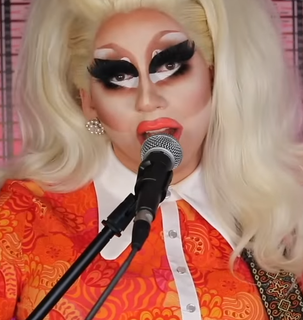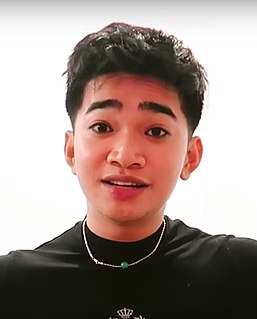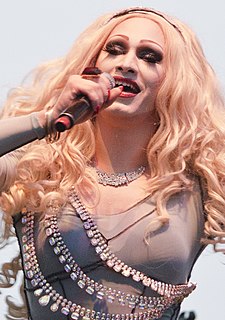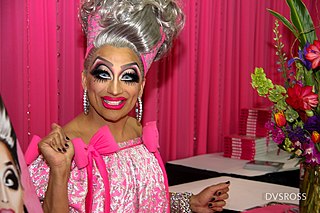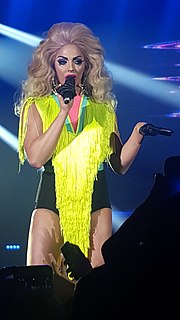A Quote by Sasha Velour
I want to do something that is not just a pastiche of drag that's come before but is really authentically me. I try to tune out all the drag that's out there and tap into the drag that I was doing when I was a little kid - when I didn't even know the word 'queer' or that gay people were out there.
Related Quotes
At the end of the day, I just love drag so much that it's not enough for me to be a successful drag queen. I want to do right by my drag community as a whole... creating opportunities for other performers, documenting and uplifting amazing drag, and generally just contributing a lot of love and respect to our fabulous little world!



